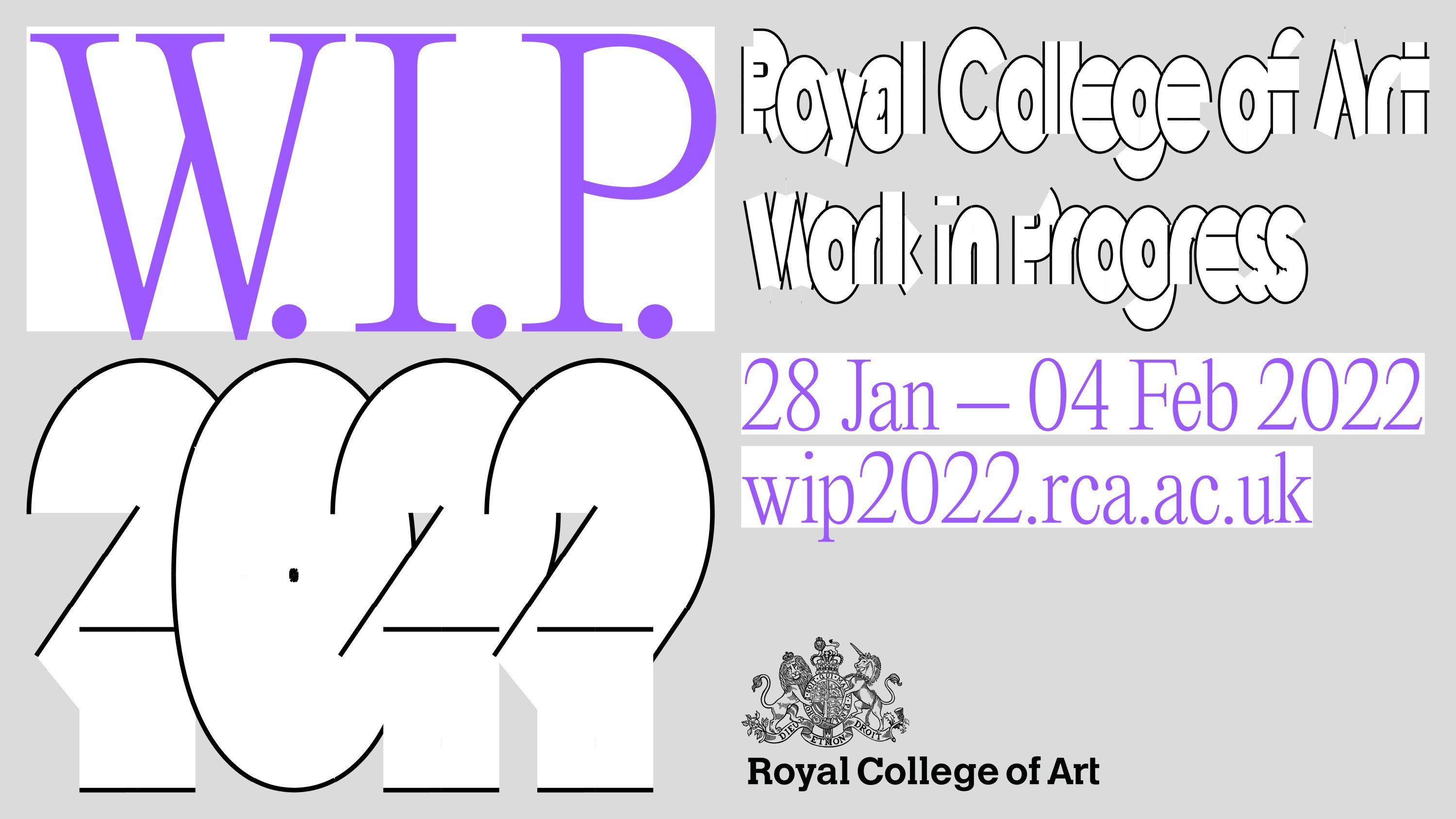
Key details
Date
- 20 June 2022
Author
- Sophie Paul
Read time
- 3 minutes
Sophie Paul (MA Writing, 2021) explains how the RCA2022 visual identity incorporates a positive move towards accessibility. With input from the RCA's Disabled Students Network and Neurodivergence society, working alongside our design agency Europa.

The visual identity for RCA2022 is the result of collaboration between Europa and RCA students including input from the RCA's Disabled Students Network and Neurodivergence Society, as well as invaluable resources available from Shape Arts and the Royal National Institute for the Blind. Engaging in and encouraging open dialogue has been an important learning curve in demonstrating the joys of making and platforming work that everybody, regardless of ability, should be able to access, as well as the challenges and importance of pushing for better access inclusion across the board.
Who

The visual identity for RCA2022 was designed by Europa, made up of Robert Sollis and William Jacobson, both RCA alumni, with Kaiya Waerea and Sophie Paul, graduating students from the RCA's MA Writing.
Europa are a graphic design studio interested in all forms of culture. Europa work with a diverse set of cultural institutions on projects including graphic identities, books, publications, exhibition design, signage, art direction and websites. Europa’s approach to design is collaborative – believing the constraints that a project brings can be both liberating and joyful.
Kaiya and Sophie were approached by Europa to give insight into producing a visual identity that holds valuable dialogue about accessibility in design practice at its centre.
Values

RCA2022 has given us a chance to think about accessibility and inclusion within design; what does an accessible graphic design practice look like? What are the barriers faced by deaf, disabled and neurodivergent students, and what provisions can design provide to meet them? How do we design for a future that does not aim to eradicate disability but respects and supports a diverse range of needs? What does this look like in the context of presenting student work?
Our priority within this process has been to challenge our assumptions about what ‘good’ design is and how it operates, with a view not only towards RCA2022 but how this can bleed into life outside of Kensington and Battersea. The blended modes of learning that we as students have operated within for the last two years have meant that design happens in both local and global arenas, physically and digitally, in our studios, bedrooms, kitchens. When we speak about disability justice, we do so with a view that whatever we were doing before has not been enough – it is our task to think about how design can produce vital new knowledges that challenge the norms and that look towards a future that we want to see.
WiP

Creating the identity for the Work-in-Progress 2022 show was a catalyst in deciding to centre dialogue around access at the centre of the RCA2022 identity. The Work-in-Progress featured graphics that moved in and out of legibility, and from this we were faced with questions and challenges about the scales of legibility and image-making.
It was important for the RCA2022 identity to re-engage with this conversation; the identity becoming a moment to create conversation between students, staff and visitors about how legibility and accessibility interact. The identity stimulates this dialogue through computer generated typography and animation presented alongside image descriptions, as key moments in the design that are not only informative but also aesthetically considered.
RCA2022

This is an ongoing process but through starting this conversation we push for better access provisions in the RCA’s Graduate Shows, and across the College and the arts more widely. This goes beyond a visual identity and encourages broad communication across college and further into the arts sector. Whilst this hasn’t been an easy process we hope that this means future years will allow the conversation about disability justice and design to continue.
The identity for RCA2022 deliberately draws on accessible conventions around alt text, image descriptions, high contrast, and Bionic Reading ® (the bolding of some initial letters to make reading easier for neuro-diverse audiences, e.g. those with dyslexia).
RCA2022 challenges ableist modes of knowledge production, prioritises inclusion, and not only what provisions we can provide within the Identity, but how we can look further towards design as an inclusive and liberatory practice.
The first sharing of work for RCA2022 took place in June 2022, with a further exhibition taking place in September 2022.
Sophie Paul is a writer and designer from Oxfordshire, UK. She is graduating from MA Writing.
